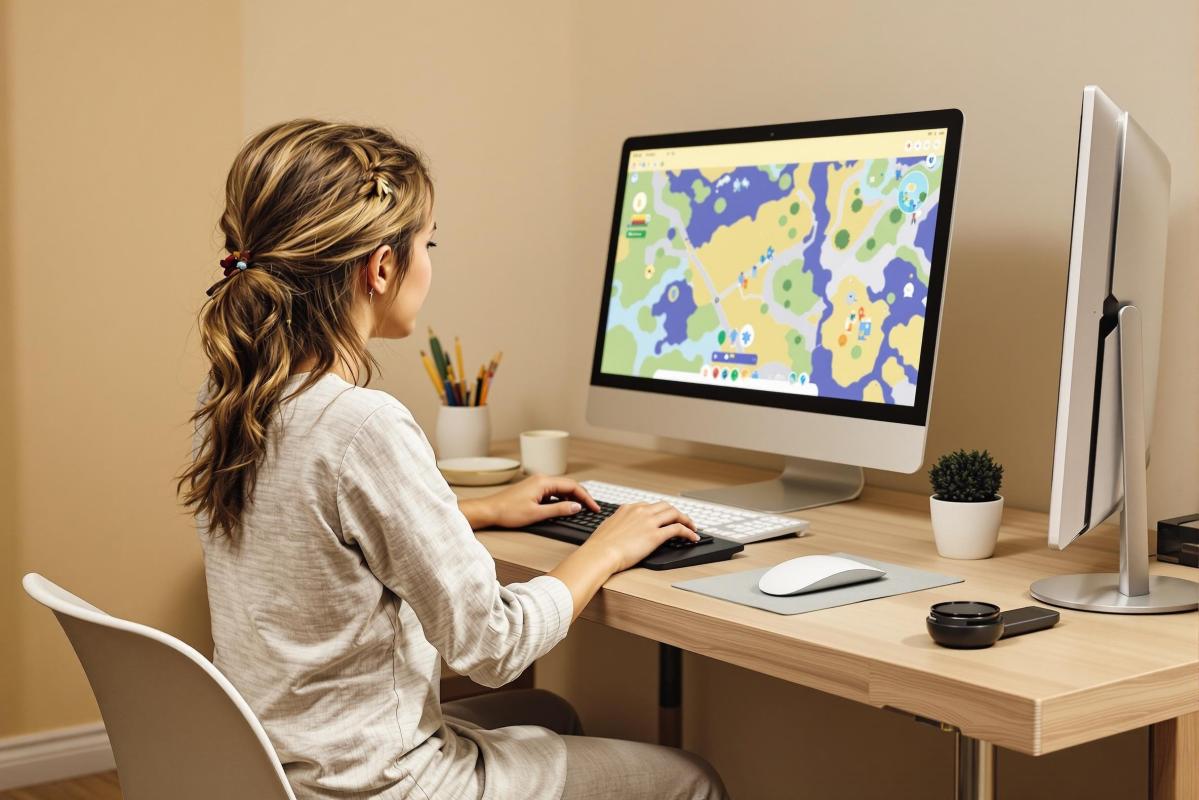Kodu Game Lab is an innovative platform for teaching programming, allowing kids to create their own games using visual block coding. They can experiment with game design, and develop creativity and logical thinking.

Coding isn't child's play, but with the right tool, anyone can learn it. That's why Microsoft developed Kodu Game Lab, a tool that introduces the basics of coding in a fun and intuitive way. What does it offer and who is it suitable for? Let's take a closer look.
What is Kodu Game Lab?
Kodu Game Lab is a visual programming language that allows for easy game creation without the need for programming knowledge. Users can design game worlds on fictional planets.
Additionally, they can add characters and define their behavior using simple conditions (WHEN-DO), which are displayed in graphic form. The tool is suitable for children as young as 8 years old and is available for free.
How Does Kodu Game Lab Work?
Kodu Game Lab uses visual block programming, where users piece together commands into sequences that determine characters' behavior in the game. Initial steps involve simple actions like moving forward or turning, while more advanced tasks include complex interactions and logic.
The learning process occurs through prepared lessons that gradually introduce new concepts such as loops, conditions, and variables. Children receive immediate feedback on their progress, speeding up the learning process.
Advantages of Kodu Game Lab
Thanks to visual block programming, Kodu Game Lab is intuitive and easy to use for both children and adults with no prior experience. Users can create various types of games and experiment with game design and logic, which fosters their creativity and allows them to create original projects. An additional plus is the support for Czech language.
The platform also has an active community where users can share their projects and download from others. Besides that, Kodu helps develop skills like logical thinking, problem-solving, and storytelling, believed by experts to be one of the most vital skills of the future. The program is available for free for Windows and Xbox 360.

Disadvantages of Kodu Game Lab
While Kodu Game Lab is great for beginners, it has certain limitations that may deter more advanced users. One of the main drawbacks is the limited options for advanced programming. Another downside is the simplistic graphical processing of games. Some users may not favor downloading and installing software.
How to Start with Kodu Game Lab?
Starting with Kodu Game Lab is as simple as with other platforms. First, download the application from Microsoft's official website. Just click "Get" and wait for the program to download and install.
Then open it and create an account. Don't forget to go through the introductory tutorial that will familiarize you with the basic functions and controls. Once you master the basics, you can start experimenting with various game mechanics and creating more complex scenarios.
You have various types of games at your disposal, from simple arcades to complex adventures. Guides and videos are also available to help you perfect your skills and learn new techniques.
How zero trust works: why mere connectivity no longer means safety

Connecting to the internet today is not just a matter of speed but also of trust. Networks handle more and more devices, sensitive data, and services that communicate almost constantly. This is why an approach called zero trust has emerged, where nothing is automatically considered safe. The article explains why this model was created and how it subtly influences everyday internet functioning.
10 reasons why your phone is drained sooner than expected

It happens that the battery life decreases faster than one would expect, even when the device is not particularly stressed during the day. Often, it's not a single specific error but a sum of small influences that gradually accumulate. This article explains what has the greatest impact on battery life, when idle draining occurs, and why this can turn into an issue causing the phone not to last even one day.
Wi-Fi on a plane? Yes, but it works differently than at home

Connecting to the internet during a flight is no longer an exception, but it still doesn't work as you're used to at home. In-flight Wi-Fi depends on the technology used, the type of aircraft, and network congestion, and paying for access doesn't always mean fast connection. In this article, we'll explain how in-flight internet works, why it can be slow, and when you can rely on it.
RCS messages: what they are, how they work, and when it's better to turn them off

RCS chat is appearing more frequently in mobile devices, especially with the arrival of iOS 18 and the gradual phasing out of older networks. It is a method of communication that uses the internet, offering higher quality sharing of photos and videos than traditional SMS. We'll explain what RCS means and when it makes sense to keep it enabled.
12 steps to prepare a child for their first phone

A first mobile phone can make a child's communication and daily orientation easier, but it also opens topics that are good to address in advance. These include safety, sharing, communication, or screen time. How to prepare a child for their first phone so that they use it safely, calmly, and wisely?
Autonomous vehicles around the world: How close are we to regular driverless operation?

Cities around the world are seeing an increase in autonomous vehicles as part of their transportation systems. However, their reliability varies significantly by region. We will explore where this technology is already commonly transporting passengers and what autonomous driving means in practice today.